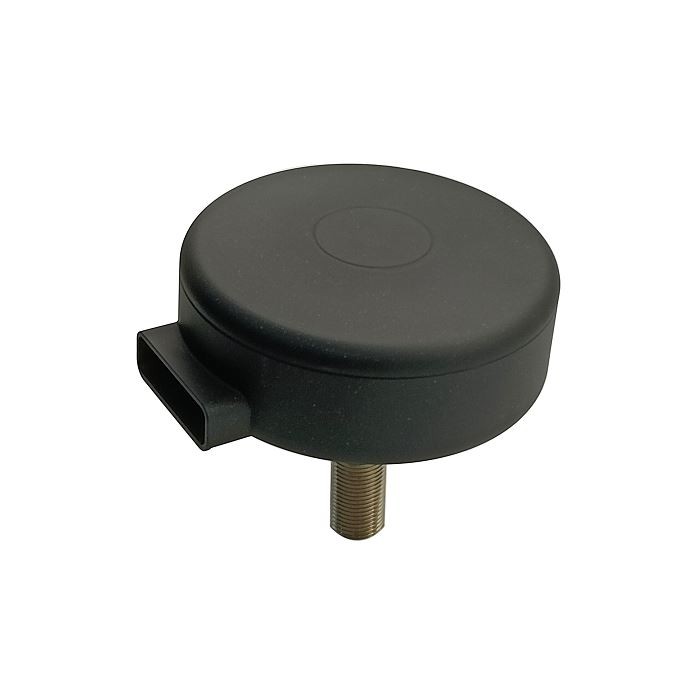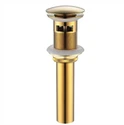Hey there! As a cup washer supplier, I've seen firsthand how these nifty little devices can really shake up the assembly process. Today, I'm gonna dive deep into how cup washers influence the assembly game and why they're such a big deal.
Let's start with the basics. Cup washers are those small, often circular pieces that might seem insignificant at first glance, but they play a crucial role in the assembly of all sorts of products. Think about it - when you're putting together a complex machine or even a simple piece of furniture, you've got a bunch of parts that need to fit together just right. That's where cup washers come in.
One of the main ways cup washers influence the assembly process is by providing a stable base. When you're tightening a bolt or a screw, the cup washer distributes the pressure evenly across the surface. This prevents the fastener from digging into the material and causing damage. For example, if you're assembling a wooden cabinet, using a cup washer can stop the screw from splitting the wood. It's like having a little cushion that protects your materials and ensures a more secure fit.
Another important aspect is alignment. Cup washers can help keep parts in the right position during assembly. They act as a guide, making sure that everything lines up correctly. This is especially useful when you're dealing with precision components. For instance, in the automotive industry, where even the slightest misalignment can lead to big problems, cup washers are used to ensure that engine parts fit together perfectly. They make the assembly process smoother and reduce the chances of errors.
Now, let's talk about the different types of cup washers and how they can impact assembly. There are various materials available, such as metal, plastic, and rubber. Each material has its own properties and is suitable for different applications.
Metal cup washers, like those made of stainless steel, are incredibly durable. They can withstand high levels of pressure and are resistant to corrosion. This makes them ideal for heavy-duty applications, such as in construction or industrial machinery. When you're assembling a large structure or a piece of equipment that will be exposed to harsh conditions, stainless steel cup washers are a great choice. You can check out our Stainless Steel Glass Rinser for an example of how stainless steel components can be used in a practical product.
Plastic cup washers, on the other hand, are lightweight and often more affordable. They're also great for applications where you need to reduce noise or vibration. For example, in the electronics industry, plastic cup washers can be used to dampen vibrations and protect delicate components. They're easy to work with and can be customized to fit specific requirements.
Rubber cup washers are known for their flexibility and sealing properties. They can create a tight seal, preventing leaks and keeping out dust and moisture. This makes them perfect for applications where you need to maintain a watertight or airtight environment. For instance, in plumbing systems, rubber cup washers are used to ensure that pipes and fittings don't leak. You can see a similar application in our Glass Rinser Sink Attachment, which uses components that rely on good sealing for proper functionality.
The finish of a cup washer can also have an impact on the assembly process. A smooth finish can reduce friction, making it easier to install the washer and the fastener. This can save time and effort during assembly. On the other hand, a textured finish can provide better grip, which is useful in applications where you need to prevent the washer from slipping.
In addition to their functional benefits, cup washers can also improve the overall aesthetics of a product. They can give a clean and professional look, especially when used in visible areas. For example, in furniture assembly, using the right cup washers can enhance the appearance of the finished piece.
Now, let's consider the cost factor. Cup washers are generally inexpensive, but the savings they can bring to the assembly process are significant. By preventing damage to materials and reducing the need for rework, they can actually save you money in the long run. They also help increase the efficiency of the assembly line, allowing you to produce more products in less time.
When it comes to choosing the right cup washer for your assembly process, there are a few things to keep in mind. First, consider the application. What kind of product are you assembling? What are the environmental conditions it will be exposed to? These factors will help you determine the appropriate material and size of the cup washer.
Second, think about the fastener you'll be using. Different fasteners require different types of cup washers. Make sure that the washer is compatible with the size and type of the fastener to ensure a proper fit.
Finally, don't forget about quality. Investing in high-quality cup washers can make a big difference in the performance and longevity of your product. As a cup washer supplier, we take pride in offering top-notch products that meet the highest standards.
In conclusion, cup washers have a huge influence on the assembly process. They provide stability, alignment, and protection, and they come in a variety of materials and finishes to suit different applications. Whether you're in the construction, automotive, electronics, or any other industry, cup washers can help you achieve a more efficient and reliable assembly.


If you're interested in learning more about our cup washers or discussing your specific assembly needs, we'd love to hear from you. Just reach out to us, and we'll be happy to assist you in finding the perfect cup washers for your project.
References:
- "Mechanical Fasteners Handbook" by Carl H. Hamann
- "Assembly Technology: Fundamentals and Applications" by Jörg Franke





